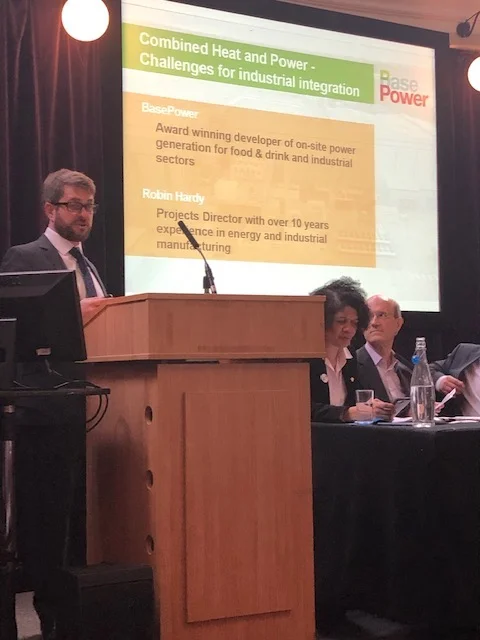Innovation and the future direction of the UK energy sector was recently debated at the Westminster Energy, Environment and Transport seminar, featuring keynote sessions and panels from a number of policymakers and stakeholders.
Chi Onwurah MP, Shadow Minister for Industrial Strategy, Science and Innovation, who opened the conference, argued that the UK should incorporate new innovations such as battery technology and energy from low carbon sources to help decarbonise the economy.
In his keynote speech, Matthew Billson, Head of Strategy - Energy Innovation Programme at BEIS said the UK leads the world in decoupling growth from emissions and the Government’s investment in energy is higher than ever before. As a result, there is increasing innovation in commercialising new technologies which can play a key role in the UK’s aim to become a low carbon economy. The automotive sector is leading the way. Honda recently announced a partnership with UK battery technology firm Moixa to support the electrification of all its vehicles in Europe by 2025. And earlier this year, Mitsubishi Corporation announced a 20 per cent stake in Ovo Energy, as it seeks a foothold in the digital energy transition.
Electricity Generation - the choices involved
Matthew Billson outlined the Clean Growth Strategy of 2017, which details the Government’s plans in response to the Climate Change Act. He discussed the allocation of a £505 million funding grant for the Energy Innovation Programme as part of the Government’s aim to accelerate the commercialisation of cheap, clean and reliable energy technologies by the 2020s.
The primary technologies and their relative merits are:
· £180m – Nuclear
Almost free from CO2 emissions but costly, difficult to tweak the output and process the resultant waste.
· £15m - Renewables
Emissions free, also costly, not dispatchable and requiring plenty of space.
· £100m - CCS and industry.
Support for industrial energy efficiency is welcome but large-scale CO2 capture and storage remains tied to depository locations off shore for further fossil fuel extraction.
· £90m – Built Environment
The UK’s building stock needs significant investment to reduce our domestic and commercial heating demand.
· £70m - Smart systems
More flexibility will be required from the grid as the % of renewables on the grid increases.
The opportunities of battery storage to support our future energy systems was one of the clear themes of the day. Energy from renewable sources has grown considerably but grid storage is still needed to smooth out the supply of renewables when the wind isn’t blowing and the sun isn’t shining. Significant progress has been made in the short-term battery sector (sub 4 hours capacity) over the last few years to provide grid services and support during times of strain, but longer term storage systems require more development.
Neil Morris of the Faraday Institution argued that the UK leads in vehicle electrification, as evidenced in London’s growing fleet of electrified buses and taxis. Although only 10% of cars are currently electric the target is to reach 100% by 2040 so there is huge potential for growth.
Funding is to be allocated to the Built Environment to decarbonise buildings, including the roll out of smart meters, use of big data and smart systems such as demand side response and vehicle to grid.
Hydrogen energy was increasingly talked about as a clean energy source for the future but there were lots of questions from the floor about the lack of a governing policy framework and the costs of production, which is still more expensive than other fuels. Generating hydrogen from excess renewable electricity at night is being explored alongside steam reformation of methane and the subsequent carbon capture of the CO2.
The role of CHP in a decarbonised economy
Robin Hardy, BasePower’s Projects Director, presented a session on Combined Heat and Power (CHP), which is becoming increasingly adopted by industrial users with a high electrical and heat demand such as food and automotive manufacturers. He explained how CHP can be over 80% efficient if waste heat is captured and used to offset the use of additional fuel for manufacturing processes. Heavy energy users who install CHP schemes can significantly reduce their energy costs and carbon emissions.
Robin covered some of the challenges to implementing CHP schemes including addressing the different needs of stakeholders and the complexity associated with connecting to the increasingly congested electrical grid. BasePower has found the gas network to be more resilient and less of a project constraint than the electrical network.
From a regulatory point of view we have found that it pays off to engage early with planning and environmental offices to allay any concerns prior to development starting. Containerising the schemes has often helped our projects proceed under permitted development.
Robin finished by demonstrating how CHP can play a more flexible role as the grid moves to a higher % renewables and how the technology can also play a role in helping the roll out of electric vehicles at weaker parts of the electrical grid.
During the follow up questions Robin discussed the model of sharing the heat from industrially led schemes to neighbouring commercial and residential properties. BasePower’s vision is that long lasting heating networks can be pioneered with CHP as the initial core technology but then replaced with the a more sustainable heat source at the end of its working life.
According to a recent think tank report, Britain must completely decarbonise in the coming three decades if the country is to meet its long-term climate change objectives. The Westminster Forum seminar demonstrated evidence of real technical innovation within the industry and the speakers declared that collaboration is vital between the various suppliers and the stakeholders for it to succeed. However there is still a long way to go.










